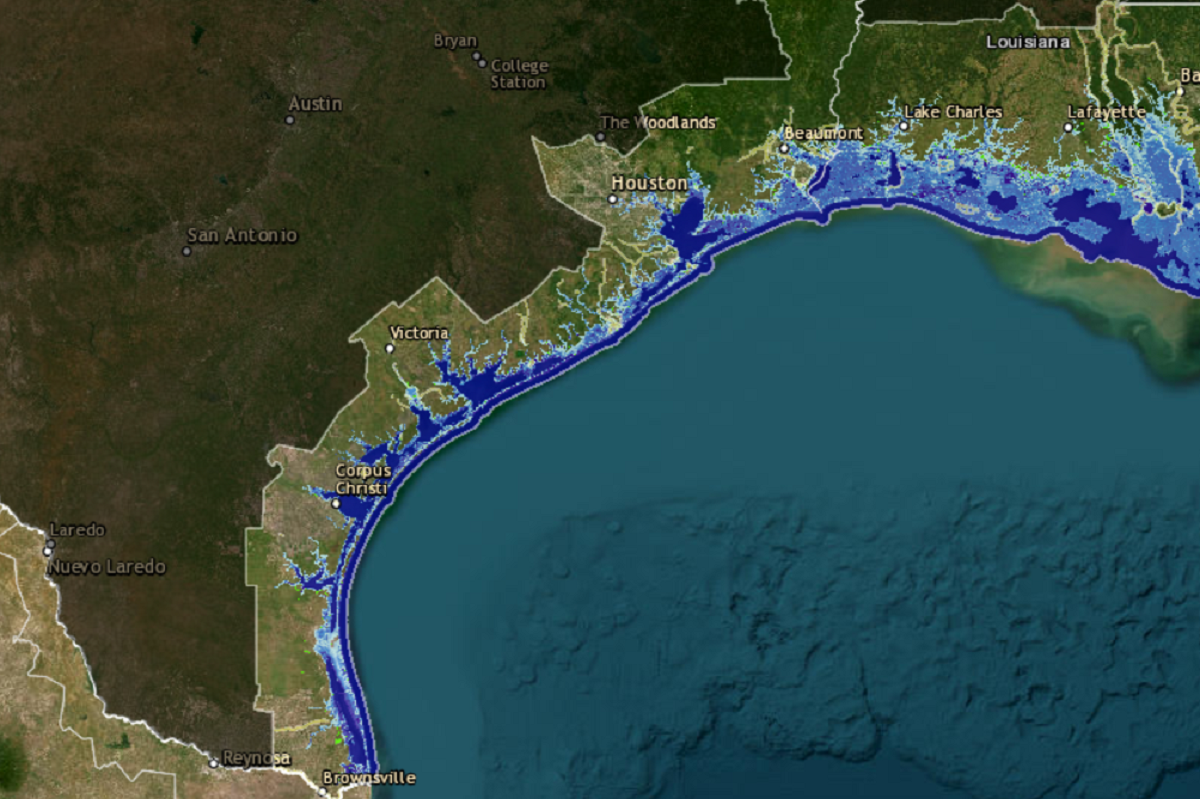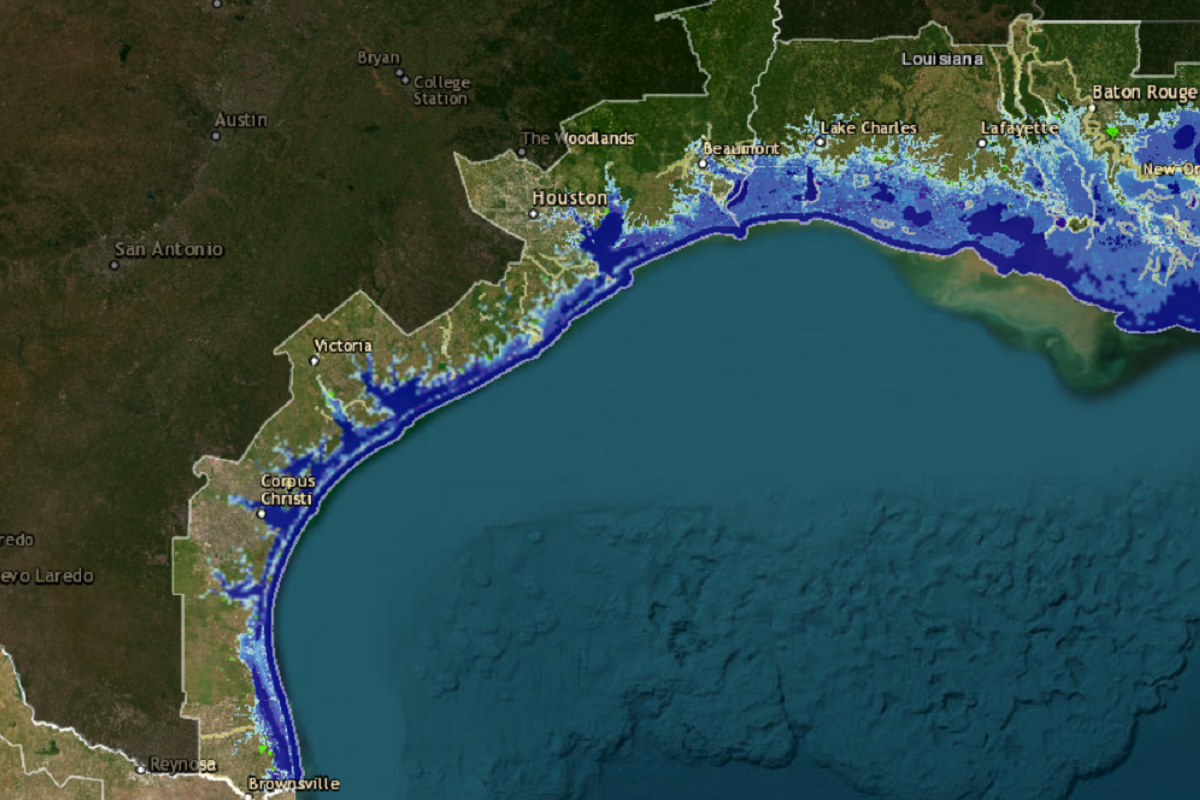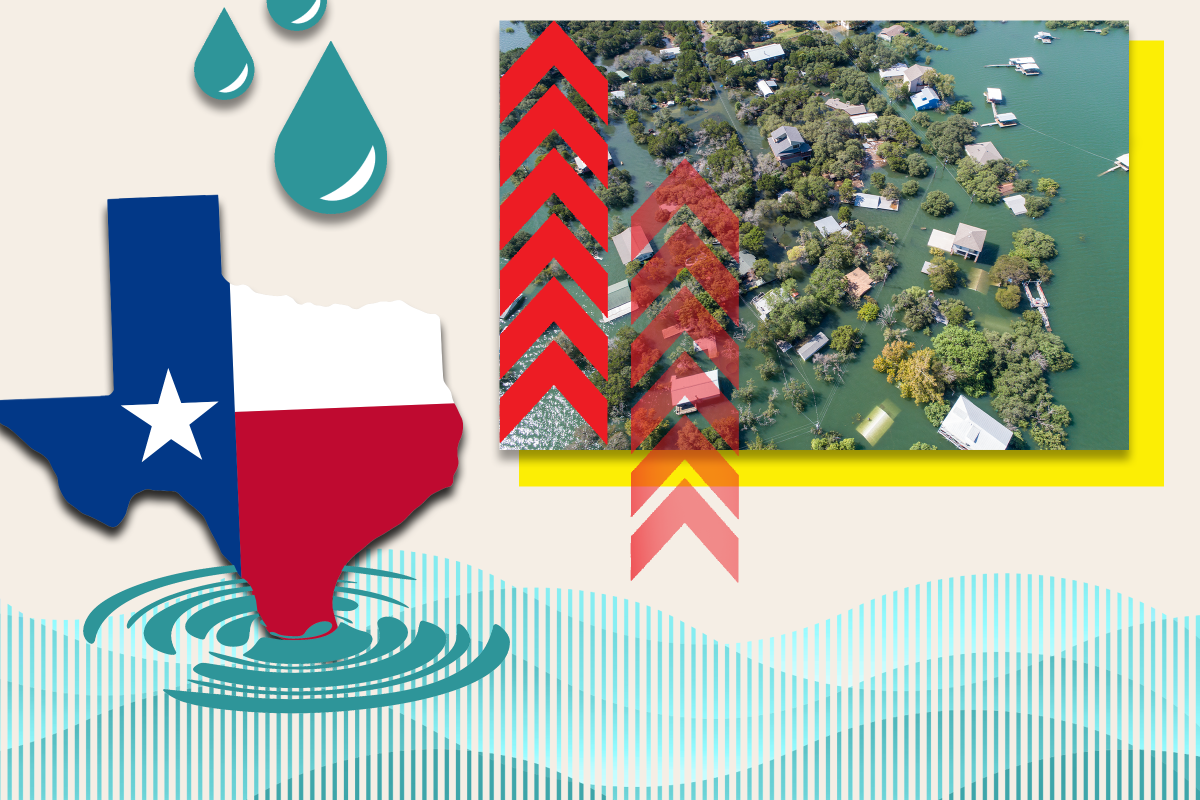Coastal areas along Texas's stretch of the Gulf of Mexico could be vulnerable to being consumed by water as sea levels rise due to the effects of climate change, modeling suggests.
By the year 2100, the Intergovernmental Panel on Climate Change (IPCC) estimates there will be between 43 and 84 centimeters (1.4-2.8 feet) of sea level rise, but that an increase of 2 meters (6.6 feet) "cannot be ruled out."
According to projections by the National Oceanic and Atmospheric Administration, a sea level rise of around 3 feet would still see receding coastlines near Houston, Galveston and Port Isabel.
Nueces Bay, near Corpus Christi, would stretch further inland, while the sea would reclaim a number of lakes near Vanderbilt, Jackson County, enlarging Lavaca Bay. A similar encroachment would show signs of occurring to nearby Green Lake and Oyster Lake.
The San Bernard and Brazoria National Wildlife Refuges would also become aquatic, while Freeport in Brazoria County would become a new peninsula. Meanwhile, Christmas Bay and the surrounding areas would grow.
Under 6 feet of sea level rise, the San Jacinto historic battleground site would partially become part of Crystal Bay near the Port of Houston, while the nearby I-10 bridge across the San Jacinto River would have to be rebuilt to avoid falling into the sea.
The Anahuac National Wildlife Refuge would disappear into the East Bay, while Surfside Beach would become a shoal. The eastern side of North Beach in Corpus Christi would be reduced to a smattering of islands while the Nueces Bay Causeway linking it to Portland would be underwater.
Galveston would become a much smaller island, with water subsuming swathes of built-up areas, including the location of the Galveston County Historical Museum and the Strand Historic District. Scholes Airport would effectively be retaken by the sea, assuming no mitigation or adaptation efforts are taken by then.

But David Thornalley, a professor of ocean and climate science at University College London, previously noted that 2100 was only a single lifespan away, telling Newsweek that greater sea level rises with far more severe impacts due to melting ice sheets were being predicted to occur in the coming hundreds to thousands of years.
He said the most vulnerable ice sheets were those in the Antarctic that are marine-based—that is, the bottom of the ice sheet sits on land that is below sea level.
Antarctica's ice sheet holds enough water to raise sea levels by more than 190 feet. One 2022 paper estimated that its ice sheet would collapse in about 2,000 years, though this could happen in as little as 500 years or as far away as 13,000 years.

Meanwhile, the concurrent melting of Greenland's ice sheets could raise sea levels by a further 23 feet.
If all the world's ice sheets melted, sea levels are predicted to rise by 216 feet. Under this scenario, the Atlantic Coast is predicted to fare far worse than the Pacific due to the nature of the terrain—though all coastal areas would recede.
Analysis by National Geographic in 2013 suggested that the entirety of Florida would disappear underwater, as well as significant portions of the Carolinas, New Orleans and New York City. The Delmarva Peninsula would be subsumed by the ocean.
In Texas, Houston would become a part of an enlarged Gulf of Mexico, though large swathes of the state further inland would remain above water.

Uncommon Knowledge
Newsweek is committed to challenging conventional wisdom and finding connections in the search for common ground.
Newsweek is committed to challenging conventional wisdom and finding connections in the search for common ground.
About the writer
Aleks Phillips is a Newsweek U.S. News Reporter based in London. His focus is on U.S. politics and the environment. ... Read more
To read how Newsweek uses AI as a newsroom tool, Click here.








